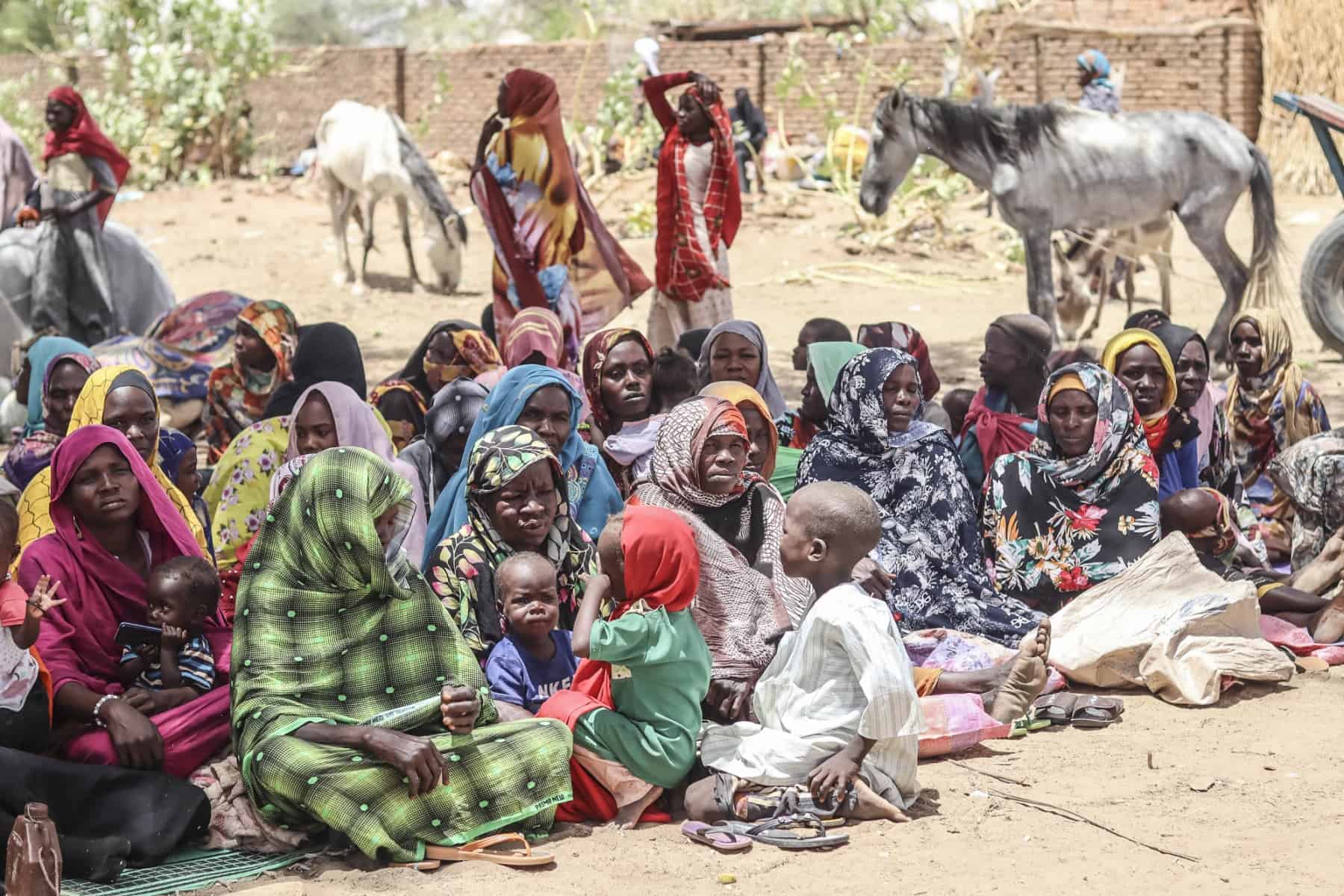NEW YORK, US – Two senior UN humanitarian officials have called for more funding and fewer bureaucratic impediments to support civilians affected by the crisis in Sudan, including roughly 14 million children.
Ted Chaiban, Deputy Executive Director for Humanitarian Action and Supply Operations at the UN children’s agency (UNICEF), and Edem Wosornu, Director of the Operations and Advocacy Division at the UN humanitarian affairs office (OCHA), briefed journalists on their recent mission to Sudan and Chad.
The crisis in Sudan recently passed the 100-day mark. Overall, 24 million people across the country require aid.
Chad is one of several neighboring nations hosting some 900,000 people who fled the violence.
Chaiban expressed hope that ongoing talks in Saudi Arabia will lead to a cessation of hostilities.
He said that the conflict is threatening the lives and futures of children and young people, who make up over 70 percent of Sudan’s population.
Chaiban said nearly 14 million children desperately need humanitarian relief – a number that is equivalent to all the boys and girls in Colombia, France, Germany or Thailand.
Some 1.7 million have been driven from their homes, adding to the nearly two million who were already uprooted before the crisis.
Impossible choices
“Parents are making the impossible choice of deciding whether to stay or leave, and leave everything behind they have known,” he said. “And those children who are on the move, both within Sudan and neighboring countries, are vulnerable to hunger, disease, violence and separation from their families.”
Three million under-fives in Sudan are malnourished, with 700,000 at risk of severe acute malnutrition and mortality. Some 1.7 million children could miss out on critical vaccinations, raising the risk of disease outbreaks.
“In White Nile State, we currently have what is usually a lethal combination, which is acute watery diarrhoea, measles and malnutrition in the same place, and that needs to absolutely be contained because otherwise, the consequences are severe,” he said.
The world needs to wake up
This week, UN agencies reported that over 20 million people across Sudan now face severe hunger and six million are on the brink of famine.
Nearly four million people alone have fled their homes to seek safety, including across the border into Chad, South Sudan, the Central African Republic, Ethiopia and Egypt.
Of those who remain, scores have been flocking to Port Sudan, the city on the Red Sea where the UN established a hub shortly after the fighting broke out. The arrivals are being hosted by family and friends who can barely meet their own needs as rents skyrocket and civil servants go unpaid, said Wosornu.
“We are receiving credible reports of all sorts of horrors and the world needs to wake up and hear this,” she said.
Delivering aid to millions
Wosornu pointed to “the good news amidst all this gloom”, as the UN and 93 humanitarian partners have been delivering aid wherever they can.
“We have been able to get to hard-to-reach areas,” she said. “We’re able to move trucks from Port Sudan to Darfur, and this is through de-confliction, talking to the parties to the conflict, allowing us to move goods as we could.”
OCHA has facilitated the movement of some 780 trucks carrying 35,000 metric tonnes of relief supplies since fighting broke out in mid-April.
Between April and June, humanitarians reached at least 2.5 million people. However, their target is 18 million, underscoring the need for greater financial support and fewer bureaucratic impediments.
A US$2.6 billion appeal for Sudan is just a quarter funded, or US$625 million. UNICEF alone urgently needs US$400 million to continue operations over the next 100 days.

